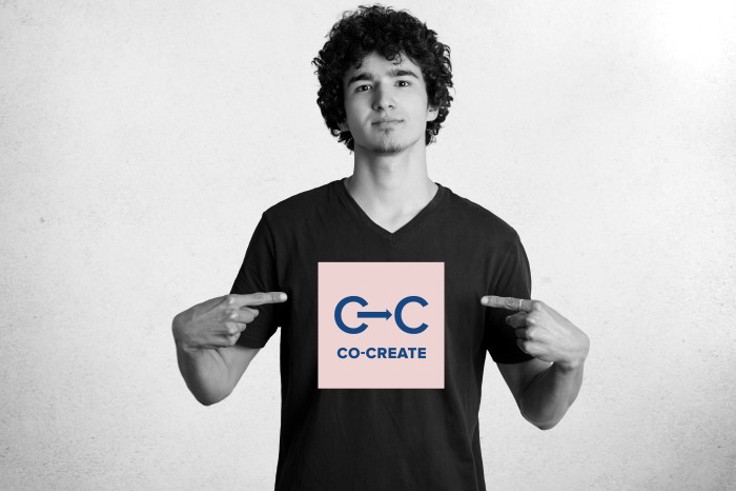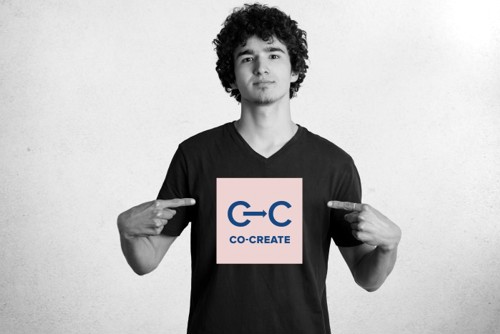What is CO-CREATE
Article
|Updated
CO-CREATE is a large project which was funded by the European Unions’s Horizon 2020 research and innovation programme as part of the response to tackle the childhood obesity epidemic from 2018 until 2023.
The CO-CREATE project - Confronting Obesity: Co-Creating policy with youth - set out to tackle childhood obesity and adolescent obesity and its comorbidities by working with young people to develop tools and practices to strengthen their role in policy development.
Over a 5-year period (2018-2023), the project had a key focus on the co-creation process, using participatory action research methodologies involving young people in the project’s design, activities and outputs. It has revealed the rapidly changing environments faced by young people today, and shown that tackling obesity means understanding young people’s social and psychological experiences, supporting their psychological resilience alongside their physical health, and supporting structural changes to their environments to make this easier.
In the process of its research, the CO-CREATE project developed novel frameworks and tools, building on existing initiatives and platforms. It has generated advocacy tools, it has designed novel methods for assessing national policies across Europe, it has built a website for young voices to be heard, and it has proposed and tested methods for researching complex systems.
Above all, the CO-CREATE project has shown that a team of researchers, non-governmental advocacy groups, government agencies and youth organisations can provide a synergy that rarely exists in social research and that young people can provide new insights into obesity prevention, and that their voices should be heard.
What CO-CREATE achieved
CO-CREATE has successfully reached out to diverse adolescents in five European countries. We have shown that young people can meaningfully enter into extended collaboration and come up with policy proposals.
CO-CREATE has:
- shown that young people support policies to increase the use of economic tools to address affordability of healthier foods, to ensure supply chains are coherent with health policies, and to support active transport and design neighbourhoods for safe and healthful physical activity. CO CREATE participants used photographic monitoring of their obesogenic environments along with mapping and group model building methods to identify policy opportunities.
- revealed new links between overweight and mental ill-health using a novel systems dynamics model to analyse large survey databases of young people’s health behaviour. CO CREATE has also designed and published the STAR framework protocol to help researchers design systems-based research projects.
- generated physical activity and nutrition policy databases with methods for benchmarking and indexing the policies for independent assessment of progress.
- confirmed that exposure to obesity risk remains inequitable, with greater prevalence of overweight in children and adolescents in less affluent families in Europe. Further, the inequality gap may be worsening for adolescents.
- found social media can also affect mental health potentially causing eating disorders and weight gain. Young people, social media are deeply embedded in young people’s daily environment and influence their attitudes to overweight and obesity.
- through experience with Youth Alliances, showed that adults and young people can work together to explore what needs to change. Activities need preparation and a high degree of flexibility.
CO-CREATE's policy priorities for Europe
The CO-CREATE project, taken together with three other major projects active 2018-2023*, has shown:
- the EU needs a new Action Plan for Child and Adolescent Obesity, consulting youth and taking their experiences into account.
- young people strongly support structural reforms of obesogenic environments, including reduced marketing of unhealthy products and fiscal policies for health investment.
- inequalities should be addressed through universal, proportionate reform of food supply, catering and marketing systems affecting young people.
- civil society needs to monitor policy development and hold responsible authorities accountable, using freely available tools developed by CO-CREATE.
- young people should be encouraged and supported in developing their advocacy skills, with opportunities for training and skills development, and with financial resources.
* PEN (Joint Action Policy Evaluation Network), STOP (Science and Technology in childhood Obesity Policy), Best-ReMaP (Joint Action on implementation of validated best practices on nutrition).
CO-CREATE's research priorities for Europe
CO-CREATE benefited from a Horizon 2020 programme that took the risk to support a project which deliberately did not have pre-determined outcomes as that would have precluded the co-creation with youth that was central to the project’s ethos. In the future, funding agencies should encourage:
- investing in flexible projects that investigate people’s lived experiences and people’s ability to participate in advocacy for change.
- incorporating systems approaches into health and social policy research. Localised interventions have had only limited effects. Population-wide, structural interventions need evaluation.
- participatory action research that provides unique insights and opportunities for understanding lived experiences and for assessing the effects of policies in advance of implementation.
- methods for predicting the effects of policies through health impact analysis and especially health equity impact analysis. These need to be developed to the point where they can be used routinely for policy assessment.
- researchers to be aware that their language and their assumptions may not be familiar to young people. Use of tools developed in CO-CREATE can help reveal unexpected issues in tackling obesity, including mental health and exposure to social media and weight stigma.
Future collaboration
CO-CREATE would like to extend an open invitation to researchers interested in collaborating on future publications.
For confidentiality reasons, all project data could not be shared openly. We have both quantitative and qualitative data, which can be explored in collaboration with researchers in CO-CREATE.
For the qualitative data, we have coded field notes and interview data with the youth participants. If you are interested in collaboration or would like more information, please get in touch at co-create@fhi.no.

